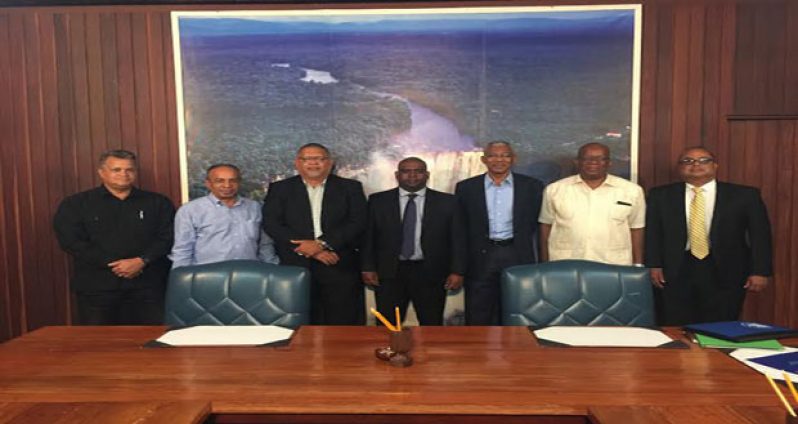THE Chairman and Executives of the Private Sector Commission met Thursday with President David Granger to discuss a number of matters of interest to the private sector. The discussions covered topics which ranged from legislative matters to infrastructural needs of the country.The Commission emphasised the need for a reorganisation of the National Insurance Scheme and GoInvest, as well as for telecoms liberalisation and tax reform. The urgent need for legislation to address money laundering, the financing of terrorism and the issue of bribery was underlined. The Commission reiterated its support for a Public Procurement Commission and an Integrity Commission.
The President was presented by the Commission with a copy of the UK anti-bribery legislation for his consideration. The business leaders also highlighted the issue of high crime rates in the country which President Granger has pledged to address. Solid waste management and the need for improvement of tertiary institutions were also on the agenda.
The infrastructural needs of the country were discussed with the President, in particular the need to expand the main airport and achieve Category One status for Guyana, the requirement for capital dredging of the Demerara Channel were reviewed. The Commission endorsed their support for the Amaila Falls Hydroelectric Project and the completion of the Marriott Hotel. The new government’s plans to hold the long-awaited Local Government Elections were actively supported.
The private sector, consistent with its tradition of collaborating with government, and the role it played in supporting the Economic Recovery Programme, the National Development Strategy, the Poverty Reduction Strategy, National Competitiveness Strategy and the Low Carbon Development Strategy, pledged its continuing support for the government’s development agenda.
The Commission explained that, through the Competitiveness Strategy, Public-Private Dialogue Bodies had been established which provided a useful mechanism for guiding government policy and decision making and suggested that these could be reconstituted.
The Commission also indicated that it would be willing to collaborate with government to organise an Economic Forum at which priorities for the economy could be distilled through dialogue. The President supported this suggestion and mandated the Commission to commence planning a Forum which would include the views of all stakeholders from civil society, Labour and religion.




.jpg)









